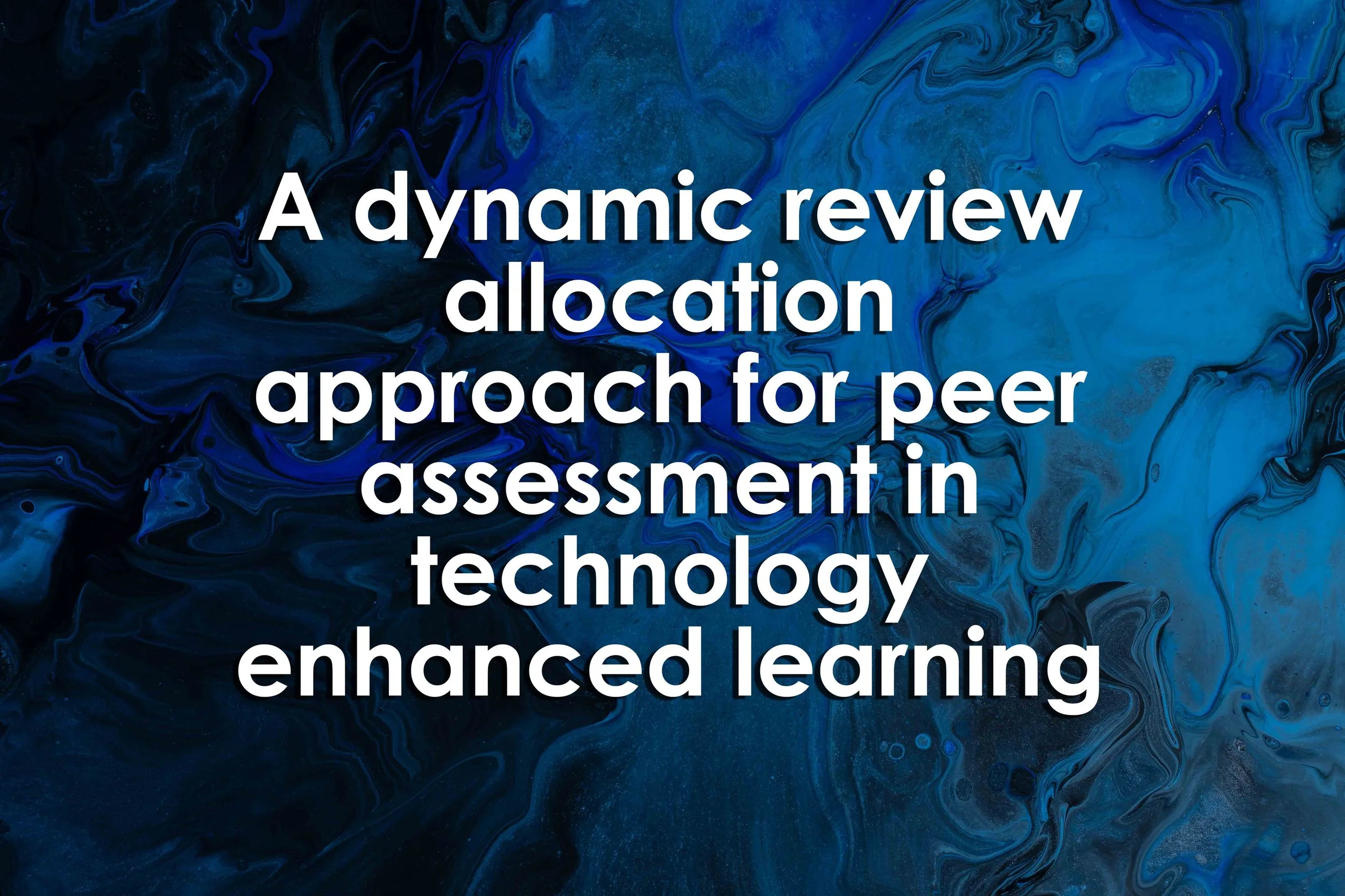A dynamic review allocation approach for peer assessment in technology enhanced learning
A dynamic review allocation approach for peer assessment in technology enhanced learning
A dynamic review allocation approach for peer assessment in technology enhanced learning
By Gabriel Badea & Elvira Popescu
Abstract
“Peer assessment plays an important part in education, fostering involvement and critical thinking skills for the students, while reducing the grading workload for the teacher. However, research on review allocation mechanisms in the context of peer assessment is relatively scarce in the literature. Although the first electronic peer assessment systems emerged over two decades ago, the matching of the solutions to reviewers has been done predominantly statically and randomly. The current paper proposes an innovative dynamic review allocation mechanism with extra bidding that attempts to solve some of the issues exhibited by the static and random approaches. The new method splits the review period in two stages: a first review phase, where students have to submit required assessments, and an extra review phase, where students can offer bidding points to perform additional optional reviews. The mechanism was integrated as part of our LearnEval peer assessment platform. We employed the approach in the context of a computer science course. A comparison of the proposed mechanism with a static review allocation approach applied in the previous year shows increased fairness. Furthermore, the results from a dedicated simulation module for emulating the novel review allocation mechanism attest the scalability of the approach.”
Reference
Badea, G., & Popescu, E. (2022, June 27). A Dynamic Review Allocation Approach for Peer Assessment in Technology Enhanced Learning - education and Information Technologies. Retrieved July 12, 2022, from https://link.springer.com/article/10.1007/s10639-022-11175-5
Keyword
Gamification, technology, learning, peer assessment, students, research

